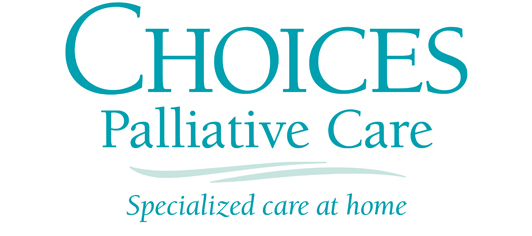Benefits of an Early Referral
Benefits of an Early Referral
Enhancing Quality of Life
“Hospice is not about dying; it’s about living,” commented Hospice & Community Care Supportive Care RN B.J. Hilles. “I tell all of my patients and their families that it’s important for them to live for the time that they have left rather than concentrating on dying.”
Goal Setting
B.J. and her fellow Supportive Care clinicians help patients and families who are in the early stages of their illness. Supportive Care is a specialized program to assist people in preventing and managing the symptoms related to their illness, and helping them and their family discover what is most important to them and help to make it happen.
One of the only hospice providers offering this program, Hospice & Community Care nurses, social workers and chaplains work with patients and their families to identify their goals to enhance their quality of life.
“When we first meet with patients and their families we discuss their goals,” commented B.J. “This is a critical step and ensures that the patient’s wishes are honored throughout each stage of care.”
“We had one patient who had several goals. First, he wanted to attend his grandson’s college graduation in Maryland, then he wanted to attend his granddaughter’s confirmation. We helped make those happen. We worked with his caregivers to make sure they were comfortable helping to manage his symptoms and partnered with hospice facilities where the events were taking place to be a resource should the family have needed help.
All of these goals were able to be met, because the patient was referred to Hospice & Community early in his diagnosis.
Benefits of an Early Referral
When a person is admitted to Supportive Care they are still able to receive curative treatment for their illness. We work closely with a patient’s primary caregiver and specialist to help manage pain and other difficult symptoms throughout their treatment.
We also visit patients at their home to help avoid emergency room visits and hospital admissions. “Many of my patients have goals of not being admitted or readmitted to the hospital,” commented B.J. “They want to be in the comfort of their own home and surrounded by caregivers and clinicians with whom they have built relationships.”
Through Supportive Care we help people know what to expect and help them know what to do when something unexpected happens. We also help them make medical decisions now and for the future.
“We help patients and families start the conversation about advance directives,” commented B.J. When we are able to meet with the patient and family in the early stages of their illness that conversation is easier, and ensures that patient’s wishes are heard and honored.”
In 2018, we had 135 patients transition from Supportive Care to Hospice Care, which is another benefit of referring a patient early. “The transition to the next level of care is not as scary for the family and patient, and the patient’s goals and wishes continue to be carried out,” shared B.J.
Making a Referral
For more information or to request an assessment, contact us at 844) 422-4031. There is a cost for Supportive Care services; however, you may qualify for Medicare coverage or be eligible for financial assistance.
Signs that a person may benefit from Supportive Care
You or a family member may benefit from Supportive Care if you have experienced:
- An increase in pain, nausea or breathing distress
- Repeated hospitalizations or trips to the emergency room
- Failure to ‘bounce back’ after medical set-backs
- Decrease in function requiring assistance walking, eating, bathing, dressing and/or going to the toilet
- Decreased alertness – patient is emotionally withdrawn, sleeping more or having increased difficulty with comprehension
- Significantly decreased appetite and weight loss
Signs that your family could benefit from Supportive Care
Caring for yourself as you support your family member who is ill is one of the most important things you can do. Hospice & Community Care supports the family as well as the person who is ill. You and your family may benefit from Supportive Care if:
- You or your caregivers are physically and/or emotionally exhausted from caring for you or your loved one.
- Your family is feeling isolated because of the demands or uncertainties you feel about your loved one’s future.
- You or members of your family need emotional support to cope with what is occurring in your life.
- You are overwhelmed by the physical, financial, emotional and spiritual concerns arising because of the illness.

 Back
Back
Keep in touch.